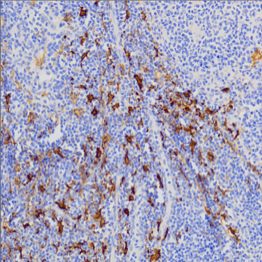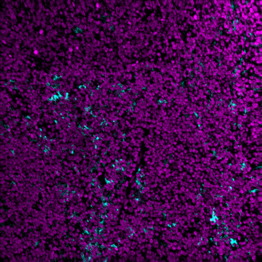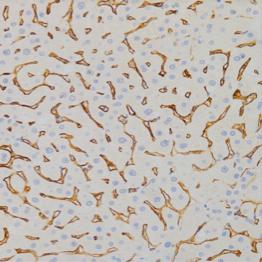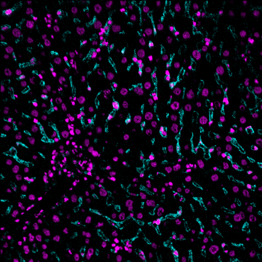DC-SIGN Antibody – 173Yb
Reactivity: Human*
Storage: DC-SIGN antibody is supplied in antibody stabilizer with 0.05% sodium azide. Store at 4°C




(cyan) of FFPE human liver, costained with dsDNA (magenta)
Validation: Each lot of conjugated DC-SIGN antibody is quality control tested by MIBIscope™ analysis of stained tissue microarray using the appropriate positive and negative tissue field of views and are pathologist verified.
Recommended Usage: 1 uL of DC-SIGN antibody per 100 uL staining volume using the MIBI™ Staining Protocol.
For optimal results, antibody should be titrated for each desired application. Suggested starting range is 1:100.
MIBI technology: Learn more about MIBI™ Technology, a multiplex IHC technology with unmatched sensitivity and true subcellular resolution.
References
-
Geijtenbeek, T.B., Kwon, D.S., Torensma, R., van Vliet, S.J., van Duijnhoven, G.C., Middle, J., Cornelissen, I.L., Nottet, H.S., KewalRamani, V.N., Littman, D.R., Figdor, C.G., van Kooyk, Y. DC-SIGN, a dendritic cell-specific HIV-1-binding protein that enhances trans-infection of T cells. Cell. 2000; 100 (5): 587–97.
* Conjugate tested on human tissue.